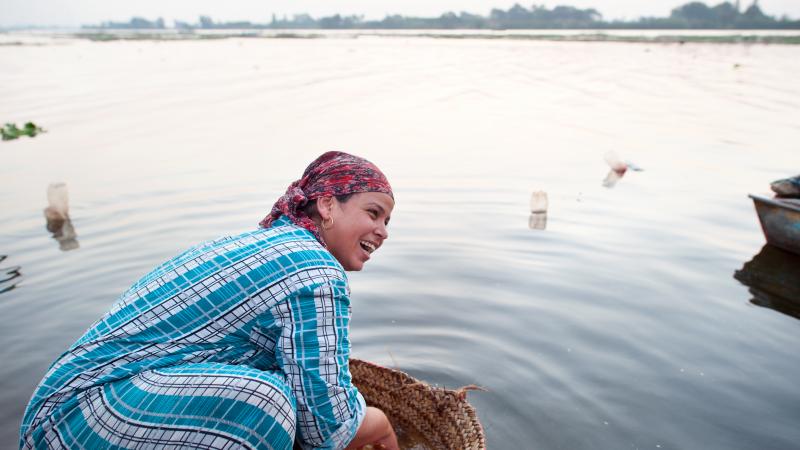New hope in Egypt for a resilient urban water infrastructure system

Egypt is in the grips of a serious water crisis. According to a report of the Central Agency for Public Mobilization & Statistics (CAPMAS), the country’s per capita water availability has declined by more than 60 percent over last four decades. In comparison to the global average of 24,776 m3/year,1 Egypt’s per capita water availability in 2015 was just around 600 m3/year.2 Egypt is already below the United Nations’ water poverty threshold ,3 and by 2025 the UN predicts it will be approaching a state of absolute water crisis .4
In a rapidly expanding city like Cairo, with a rising population and finite water supply, the capacity of state-run water distribution networks and waste water treatment plants is getting badly strained. Water allocation has become a contentious issue. More than 80 percent of the country’s total water resources are used for agricultural purposes, followed by industrial and municipal usage.
In a scenario where water supply resources are shrinking while the demand for water usage is constantly growing, a recent study on a framework for the assessment of hybrid water supply systems,5 looks at alternative (non-traditional) water supply options like rainwater, storm water and recycled water and explores the potential to meet an ever increasing water demand. The study was conducted in collaboration with a group of researchers consisting of Dr. Biju George from International Center for Agricultural Research in the Dry Areas; Ms. Mukta Sapkota, Dr. Meenakshi Arora and Prof. Hector Malano from the University of Melbourne, together with researchers from CSIRO. This research demonstrates that the use of alternative water supply options combined with centralized water supply system can significantly reduce potable water demand and alter wastewater flow and contaminant concentration.
Explaining the finer details of this research, Dr. Biju George says, ‘We applied a modelling framework consisting of two components a physical system analysis for scenario assessment and a multi-criteria decision analysis (MCDA) to rank the scenarios. This framework was then applied to a case consisting of two typical scenarios, and assessed the impact of decentralized systems on existing centralized infrastructures.’ The impacts of changed demographics caused by rising population, and climatic conditions were also evaluated. Results showed that the hybrid water supply scenario, which is an integration of traditional and non-traditional supply sources, is more resilient in terms of meeting water demands under changing population and climatic conditions.
The framework developed in this study provides an objective understanding of implementing hybrid water supply system. This is crucial in the development of more sustainable and resilient urban infrastructure system. In the context of climate change and population growth, this study adds further value to the development of a resilient urban water infrastructure system.
Insights drawn from this study can be used to ease the load on Egypt’s main water supply system and safeguard the quantity allocated for agricultural purposes. They can help water managers to make informed decisions involving the combination of decentralized and centralized systems under a variety of population and climate scenarios. Full paper is available at http://www.mdpi.com/2073-4441/8/1/4.
1AQUASTAT Database, FAO; http://www.fao.org/nr/water/aquastat/main/index.stm
2http://www.afedonline.org/afedreport/english/book5.pdf
3http://www.un.org/waterforlifedecade/scarcity.shtml
4http://www.globalpost.com/dispatch/news/regions/middle-east/egypt/12040…
5Sapkota, M.; Arora, M.; Malano, H.; Moglia, M.; Sharma, A.; George, B.; Pamminger, F. An Integrated Framework for Assessment of Hybrid Water Supply Systems. Water 2016, 8 (1), 4, doi: 10.3390/w8010004.
